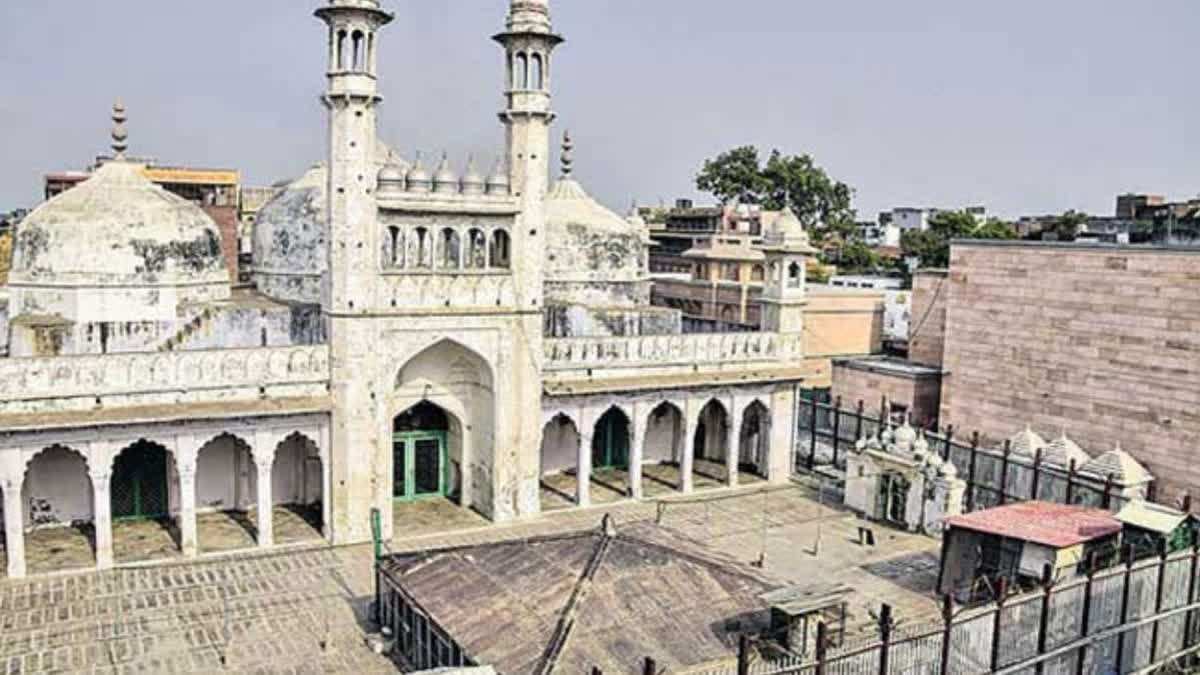New Delhi: The Supreme Court on Friday refused to stay the Allahabad High Court allowing the Archaeological Survey of India (ASI) to conduct a scientific survey of Gyanvapi mosque complex and stressed that there should be no excavation at the site.
Senior advocate Huzefa Ahmadi, representing the Gyanvapi masjid committee, vehemently objected to the ASI survey on the mosque complex. A bench headed by Chief Justice of India D Y Chandrachud and comprising justices J B Pardiwala and Manoj Misra said why should we interfere with the high court order at this stage. “We are unable to differ with the view of the high court….we reiterate the direction of the high court that there shall be no excavation.”, said the top court.
The top court directed that the entire survey be carried out through non-invasive methods and also there should be no excavation or damage to the walls or structure of the mosque. The high court had recorded a statement of senior ASI officials that no excavation at the mosque complex will take place. Committee of Management Anjuman Intezamia Masajid Varanasi Thursday moved the Supreme Court against the Allahabad High Court's order, allowing the Archaeological Survey of India (ASI) to conduct a scientific survey of Gyanvapi complex.
Solicitor General Tushar Mehta, representing the ASI, that no excavation will take place and no damage to wall etc will happen, and stressed that no damage will be caused to the structure. The Chief Justice of India observed that the high court chief justice had recorded that ASI will not conduct any excavation and no part of wall etc will be touched.
The Chief Justice of India said we will safeguard the structure and added that in Ayodhya case, the evidentiary value of ASI survey was examined and the court separated grain from shaft, and then discarded some, while stressing that only the survey is being conducted. Ahmadi said if somebody files a frivolous petition saying that there is a monument below this structure, will the court order an ASI survey? The Chief Justice replied, “What is frivolous to you is faith to the other side”.
The Chief Justice said we will safeguard the structure and added that in Ayodhya case, the evidentiary value of ASI survey was examined and the court separated grain from shaft, and then discarded some, while stressing that only the survey is being conducted. The Chief Justice said that there is a reasoned high court order, why should the apex court interfere now and, addressing Ahamdi's apprehension regarding damage to the structure, said“we will safeguard the structure”.
Ahmadi said when you start digging into the past then you are uncovering the wounds of the past, and that is what Places of Worship Act sought to injunct. Mehta said that the ASI affidavit says there is no drilling, cutting of stone will be done from the existing structure and also no wall or structure will be damaged. Mehta said ASI says it will be done by the non-destructive method.
The top court noted that this survey is going to be in the form of a report, it will be a piece of paper, if masjid committee plaint under Order 7 Rule 11 succeeds, and questioned how will it cause irreparable injury and told Ahmadi, “Let the survey take place and let the report be in sealed cover”. Ahmadi says the basis of the survey is that a structure existed underneath it 500 years ago and this survey will unravel wounds of the past.
Ahmadi submitted that a statement was made by the Uttar Pradesh Chief minister Yogi Adityanath, when the matter was sub judice. Senior advocate Madhavi Divan, representing the Hindu side, submitted ASI preserve monuments, so surely, they cannot damage it and signs and symbols have been clearly seen there and thus a scientific survey has to be conducted, citing advocate commissioner report.
Ahmadi said that he needs some time to address the court on Places of Worship Act 1991. The Chief Justice said to hear on the Places of Worship Act, while hearing a challenge to interlocutory order, the conventional wisdom is when there is a procedural order you don't go into an issue which goes at the root of the suit. The committee’s plea contended that the high court’s order should be set aside on account of "grave risks posed by such an exercise which may have consequences throughout the country".
The plea said, “it is further submitted that the impugned order is further liable to be set aside on account of grave risks posed by such an exercise which may have consequences throughout the country, as have been witnessed throughout these proceedings since a survey of the Gyanvapi Mosque was permitted, absolutely against the provisions of the Places of Worship (Special Provisions) Act, 1991.”



